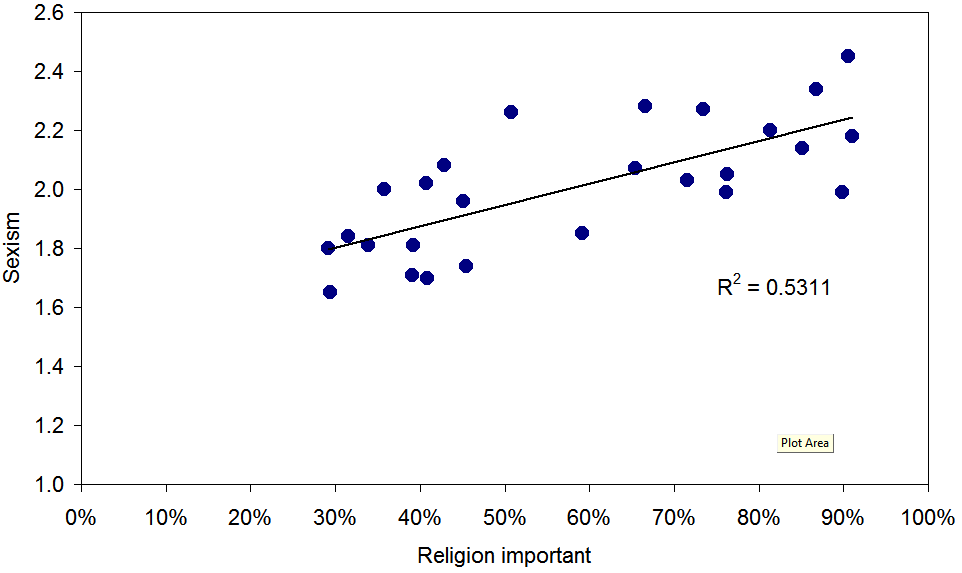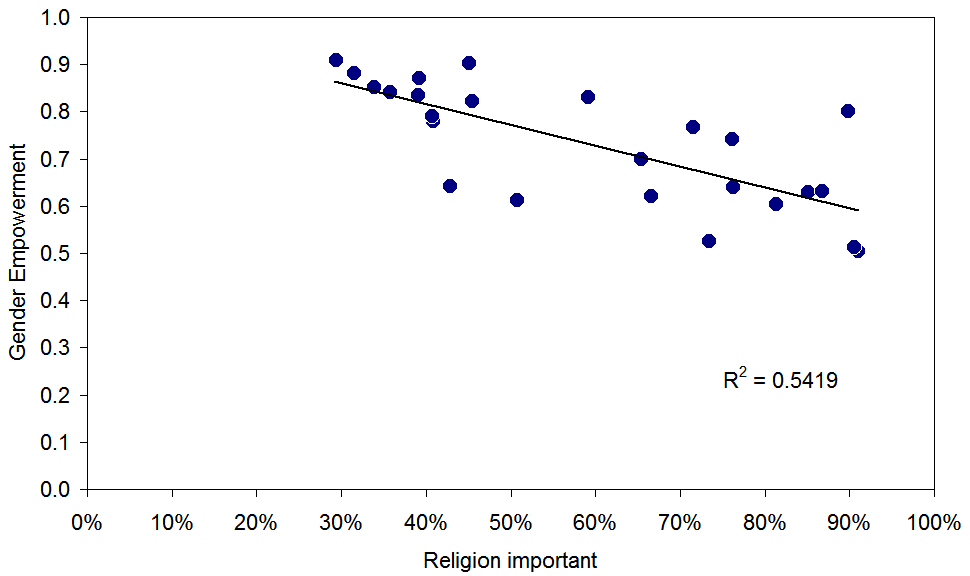This post is number 57 (I’m guessing!) in our series on “religious countries are…”, in which I run a correlation between the numbers of religious people in a country and some other national characteristic.
This time it’s the turn of sexism. You might expect that religious countries are more sexist, and you’d be right (with one caveats – but I’ll deal with that later).
The data come from Mark Brandt, a sociologist at DePaul University in Chicago. I compared this with the number of people who say that religion is either important or very important in their lives (the data for this come from the World Values Survey).
First of all, let’s look at the correlation with a straightforward measure of whether women can be leaders, which was assessed by asking the level of agreement with two questions: “On the whole, men make better political leaders than women do” and “On the whole, men make better business executives than women do.”
Overall, there’s a fairly good correlation. But there is an exception, and that’s Asian countries. There are only a few Asian countries in the sample, so it’s hard to draw sweeping conclusions. But they are all very sexist, whether their citizens are religious (Thailand, Taiwan) or non-religious (China, Hong Kong, Japan)
So I took these countries out of the analysis – in fact, what’s shown in the graphic is only those countries with a predominantly Western, Christian culture (i.e. North and South America, Europe, and Australia).
In these Westernised countries there’s a strong, linear relationship between religion and sexism.
In fact, if you narrow the sample a bit more to look only at European countries the fit is even cleaner (I haven’t shown this, but it’s a remarkably straight line).
You get pretty much the same results when you look at Brandt’s other measure (the UN’s gender empowerment score). That’s important because this is a measure not of attitudes, but of practical effects. Brandt’s main point in his paper is that sexist attitudes translate directly into sexist practices.
And the same relationship is seen with religion. The more religious countries also have lower gender empowerment, meaning fewer seats for women in parliament, fewer women in economic decision making positions, and lower female share of income.
Now, the reason for this, it seems to me, is that religion tends to be tied to ‘traditional values’. What this analysis suggests is that these traditional values can persist in the absence of religion, but that getting rid of traditional religion seems to be a prerequisite for ditching sexism!
![]()
Brandt, M. (2011). Sexism and Gender Inequality Across 57 Societies Psychological Science, 22 (11), 1413-1418 DOI: 10.1177/0956797611420445
 This article by Tom Rees was first published on Epiphenom. It is licensed under Creative Commons.
This article by Tom Rees was first published on Epiphenom. It is licensed under Creative Commons.















